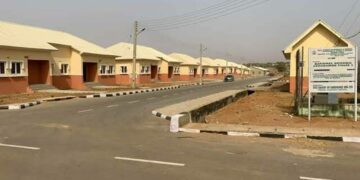Over 41000 vulnerable persons in 274 out of the 276 council wards in Benue State have been enrolled for the Federal Government Basic Health Care Provision Funds earmarked for the vulnerable groups, through the Benue State Health Insurance Agency (BNSHIA).
The agency’s head of technical operations, Dr Isaac Utera who disclosed this during the training of BNSHIA staff alongside desk officers across the 23 local government areas in the state on CLAIMs management in Makurdi the state capital, lamented that two council wards of Otukpo township1 and Onyagede in Ohimini were not enrolled following the absence of public facilities in them.
He informed that the agency is working with the Primary Health Care as owners of these facilities to see how the people in the affected two council wards can be enroll for the programme.
Utera named insecurity among some of the major challenges faced during the implementation of the programme even as he informed that a staff assistance for the enrollment team in one of the communities was killed during the attack on the facility.
According to him, this is a federal government programme and there is an implementation protocol in place for them to follow and the programme is mainly for the vulnerable groups, so the criteria for selecting beneficiaries is by involving the communities through the community leaders, community management committee, officers in charge of the programme among others to get the people.
He said, “The categories of people that fall under this vulnerable group are the physically challenged, the aged, usually 85 years and above as specified in the guideline, indigent persons, the chronically ill, and for some reasons pregnant women, widows and children under 5year.”
He maintained that the programme which has a benefit package, covers a wide range of diseases like, malaria, pneumonia, typhoid, ulcer, and even lifestyle diseases like hypertension, diabetes among others.
Dr Utera said, “For each of the 274 facilities we have enroll 150 persons and they have been accessing health care services since December 2021, afterwards, we pay for the care they have accessed, although cases that cannot be handled at the primary health level are referred to secondary level that is the general hospitals and we pay them after forwarding the bills to us in form of CLAIMs but at the primary health care level we pay in form of capitation.
“Aside the insecurity I earlier mentioned before and the difficulties experienced by our team in the hard to reach areas the enrollment witness a huge success and communities are still clamouring for more enrollment and for successful implementation and sustainability, certain process have been put in place to monitor what the service providers are doing and report appropriately.”










